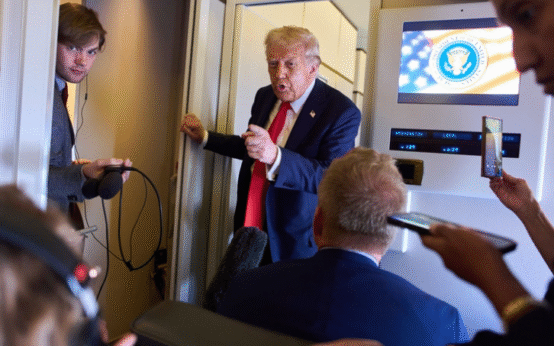U.S. Ambassador to Canada, Pete Hoekstra, has publicly confronted what he describes as a growing “border backlash” under the Trump administration, claiming that President Donald Trump holds a deep-seated grudge against Canada. Hoekstra’s comments come at a tense moment in U.S.-Canada relations, marked by tariffs, political rhetoric, trade pact renegotiations, and mutual mistrust.
What Ambassador Hoekstra Means by the Grudge with Canada
Hoekstra has said repeatedly that Canada has behaved in ways the U.S. perceives as hostile or uncooperative. He points to Canada’s use of slogans like elbows up, measures taken in retaliation to U.S. tariffs, and political statements by Canadian leaders criticizing U.S. policy.
According to Hoekstra, these actions signal animosity not just policy disagreement. He claims they reflect a broader frustration in Washington over what Trump’s administration views as Canada not respecting U.S. priorities, whether in trade, immigration, or defense.

One major issue fueling tension has been the Trump administration’s imposition of tariffs on Canadian goods. In response, Canada enacted counter-tariff measures under CUSMA / USMCA the Canada-United States-Mexico Agreement. According to Hoekstra, these retaliatory actions are not merely symbolic; rather, he contends they are actively obstructing progress toward a broader trade and security deal.
Political Rhetoric, Slogans, and Their Influence on Canada-U.S. Relations
Beyond trade policy, Hoekstra points out that political rhetoric in Canada has further contributed to worsening relations. Notably, the phrase elbows up once a grassroots slogan of resistance and protest has been repurposed by some Canadian politicians and citizens to express growing discontent with U.S. policies.
Hoekstra described elbows up as an anti-American campaign, saying it harms mutual trust. He also criticized broad usage of trade war to describe U.S.-Canada tensions, arguing that such terms escalate conflict rather than support diplomatic resolution.

Canadian leaders and media have pushed back. They say Canada has a right to respond when U.S. policies impose costs on Canadian workers, businesses, or provinces. Some politicians argue that the U.S. has changed trade rules frequently, using border and tariff policy as leverage. rather, he contends they are actively obstructing progress toward a broader trade and security deal. As a result, diplomatic efforts have stalled, with both sides entrenched in a cycle of economic pushback. Ultimately, the dispute underscores deeper challenges in reconciling national interests with regional cooperation.
Real-World Effects on Business, Travel, and Long-Term Relations
These tensions are not just rhetorical. They affect travel, business, and trade. Canadian provinces have removed certain U.S. products from shelves, businesses have canceled contracts, and trade-dependent industries worry about instability.
Tourism, retail in border towns, and cross-border supply chains all face risk if policies or relations deteriorate further. Investors and companies watching these developments wonder whether Canada-U.S. trade will become more volatile or whether negotiation will produce new frameworks for cooperation.
What the U.S. envoy revealed about Trump’s grudge with Canada on trade, rhetoric, and policy shows how much public perception and political narrative now feed into international relations. The grievances are not just about tariffs; they tie into questions of respect, identity, and sovereign rights.


 Trump Escalates Trade Pressure on Canada with Tariffs on Wood
Trump Escalates Trade Pressure on Canada with Tariffs on Wood  Hamas Says It Has Not Received Trump’s Plan
Hamas Says It Has Not Received Trump’s Plan  Kim Jong-un Open to Trump Meeting Without Denuclearization
Kim Jong-un Open to Trump Meeting Without Denuclearization  US judge tosses Trump’s $15 billion New York Times lawsuit
US judge tosses Trump’s $15 billion New York Times lawsuit  Trump turns crypto king but at what cost?
Trump turns crypto king but at what cost?  Austerity is coming to Canada under the Carney government
Austerity is coming to Canada under the Carney government